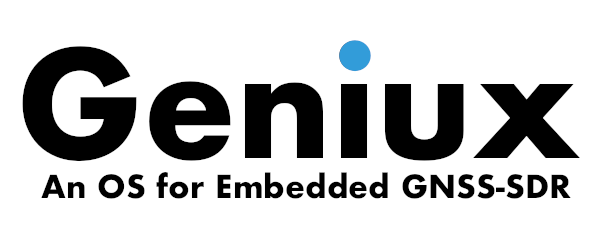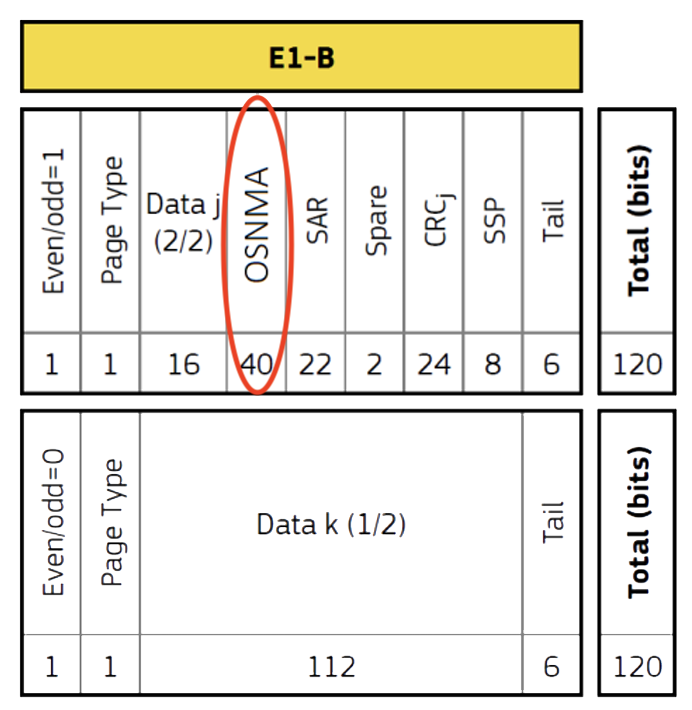GNSS-SDR v0.0.20 released
This release provides bug fixes and new features. Most relevant changes with respect to the former release are listed below:
Improvements in Interoperability:
- Improved error handling in UDP connections.
- Make it possible to receive multiple constellations using a single channel wideband device (HackRF/LimeSDR/USRP). Demonstration: here and here.
-
Add the following signal sources for use when GNSS-SDR is operating on SoC FPGA boards (
-DENABLE_FPGA=ON):ADRV9361_Z7035_Signal_Source_FPGA: Analog Devices ADRV9361-Z7035 board.FMCOMMS5_Signal_Source_FPGA: FMCOMMS5 analog front-end.MAX2771_EVKIT_Signal_Source_FPGA: MAX2771 evaluation kit analog front-end.DMA_Signal_Source_FPGA: FPGA DMA working in post-processing mode.
When building GNSS-SDR for the SoC FPGA, the following options can be passed to CMake with possible values of
ONorOFF, and their default value isOFF:-DENABLE_AD9361: Checks if the IIO driver is installed and builds theADRV9361_Z7035_Signal_Source_FPGAand theFMCOMMS5_Signal_Source_FPGAsources.-DENABLE_MAX2771: Checks if the SPIdev driver is installed and builds theMAX2771_EVKIT_Signal_Source_FPGAsource.-DENABLE_DMA_PROXY: Checks if the DMA proxy driver is installed for controlling the DMA in the FPGA and enables its usage.
- Add the
ION_GSMS_Signal_Source, which is able to process raw data files described with the ION GNSS Software Defined Receiver Metadata Standard. It requires the-DENABLE_ION=ONbuilding configuration option. - The
MonitorandPVTblocks are now able to send data to multiple UDP ports. - Add experimental decoding of Galileo’s I/NAV ARAIM Integrity Support Message (ISM) as defined in the OS SIS ICD v2.1. Values, if received, are only logged but not used.
- Added new
Cshort_To_Gr_ComplexData Type Adapter implementation. - The
Osmosdr_Signal_Source
has gained two new optional configuration parameters:
iq_balance_modeanddc_offset_mode, both of which are set to Automatic by default. - Implemented missing GPS almanac decoding.
Improvements in Maintainability:
- Updated GSL implementation to v0.42.0. See the gsl-lite release.
- Code formatting now based on clang-format 19.
Improvements in Portability:
- Fix building against google-glog 0.7.x.
- Find dependencies in the loongarch64 architecture.
- Soft transition from GFlags and
Google Logging (glog) to Abseil
Logging and
Flags libraries. While gflags and
glog have dutifully served GNSS-SDR for over a decade, they are now showing
signs of aging. The latest version of gflags dates back six years now,
although the master branch seems to be maintained. Glog remains well
maintained, with its latest version v0.7.1 released in June 2024, but with no
active development of new features and stuck at C++14. Abseil, on the other
hand, represents a contemporary evolution in software development, supports
C++17 and C++20, and has absorbed the functionalities of flags and logging
from its predecessors. Furthermore, as Abseil has become a prerequisite for
the latest versions of Protocol Buffers, its eventual inclusion in GNSS-SDR’s
indirect dependencies is inevitable. Leveraging Abseil allows for eliminating
the need for gflags and glog, thereby reducing the number of mandatory
dependencies for GNSS-SDR in forthcoming GNU/Linux distributions. For seamless
integration, GNSS-SDR requires a quite recent minimum version of Abseil,
v20240116. If an older version is detected, the library will not be utilized,
and GNSS-SDR will fall back to using gflags and glog, which still can be used
and are fully supported. A new CMake configuration option
-DENABLE_GLOG_AND_GFLAGS=ONis available to force the usage of glog and gflags instead of Abseil, even if a valid version of that library is present. If the Abseil version installed in your system is too old but you still want to try it, you can also force the downloading and building of a recent version with the new CMake configuration flag-DENABLE_OWN_ABSEIL=ON(requires CMake >= 3.24, otherwise it has no effect). This change has a downside in maintainability, since the source code becomes plagued with preprocessor directives required to maintain compatibility both with gflags and glog, and with Abseil. - Historically, GNSS-SDR linked against the GnuTLS library for cryptographic
functions. If GnuTLS was not found, then the building system looked for and
linked against OpenSSL as a fallback. This was due to the OpenSSL 1.x dual
license scheme, which was incompatible with GPL v3.0 license, preventing it
from being a mandatory dependency for GNSS-SDR in most GNU/Linux
distributions. This issue was solved with the release of OpenSSL 3.0.0, which
transitioned to the Apache License 2.0, fully compatible with GPL v3.0.
Accordingly, the GNSS-SDR building system now looks for OpenSSL in the first
place and, if not found, then it looks for GnuTLS as a fallback. The new CMake
configuration option
-DENABLE_GNUTLS=ONallows linking against GnuTLS instead of OpenSSL. - Allow linking against Boost 1.87.0.
- Replace the System V queues by boost::interprocess, improving portability.
- Improve detection of Homebrew or Macports in macOS.
Improvements in Reliability:
- Implementation of the Galileo Open Service Navigation Message Authentication (OSNMA), a data authentication function for the Galileo Open Service worldwide users, freely accessible to all. OSNMA provides receivers with the assurance that the received Galileo navigation message is coming from the system itself and has not been modified. OSNMA is enabled by default if the receiver configuration defines Galileo E1 OS channels. More details can be found in Introducing GNSS Navigation Message Authentication.
Improvements in Usability:
- Tidy up the
conf/folder. - Add
installanduninstalltargets to thenav_msg_listenerutility. -
Potential Breaking Change: The source tree has been refactored to follow a more conventional folder structure. This may disrupt user pipelines that relied on the previous structure and could break development branches that were branched off from
nextbefore this change. The key changes are:- The
testsandutilsdirectories have been moved from thesrcfolder to the root of the source tree. - The empty
buildanddatafolders have been removed. Users can create a building folder usingmkdir buildor by having CMake handle it:cmake -S . -B build. - All default names for dump or input files starting with
../data/<filename>have been changed to./<filename>.
- The
As usual, compressed tarballs are available from GitHub and Sourceforge.


